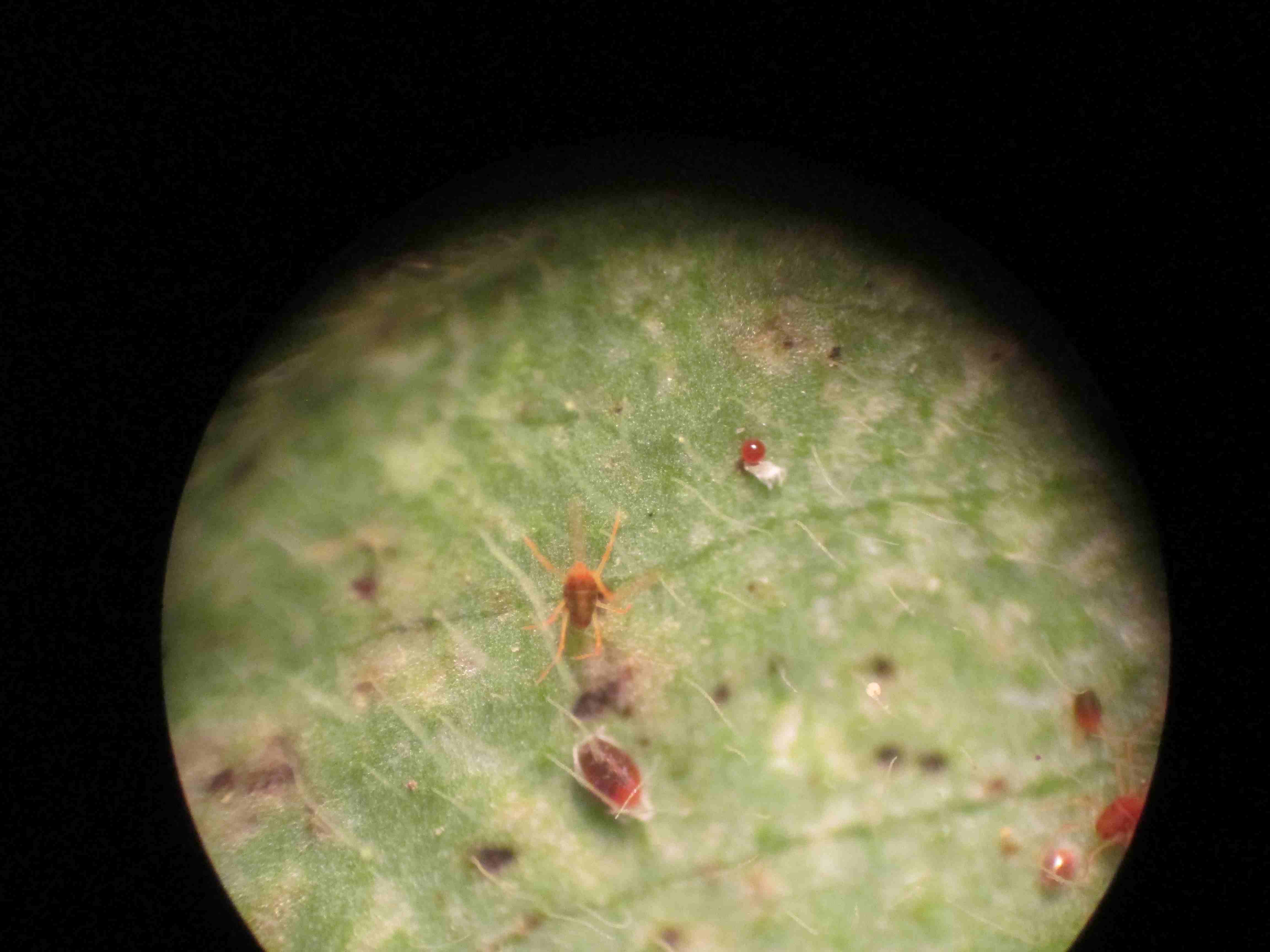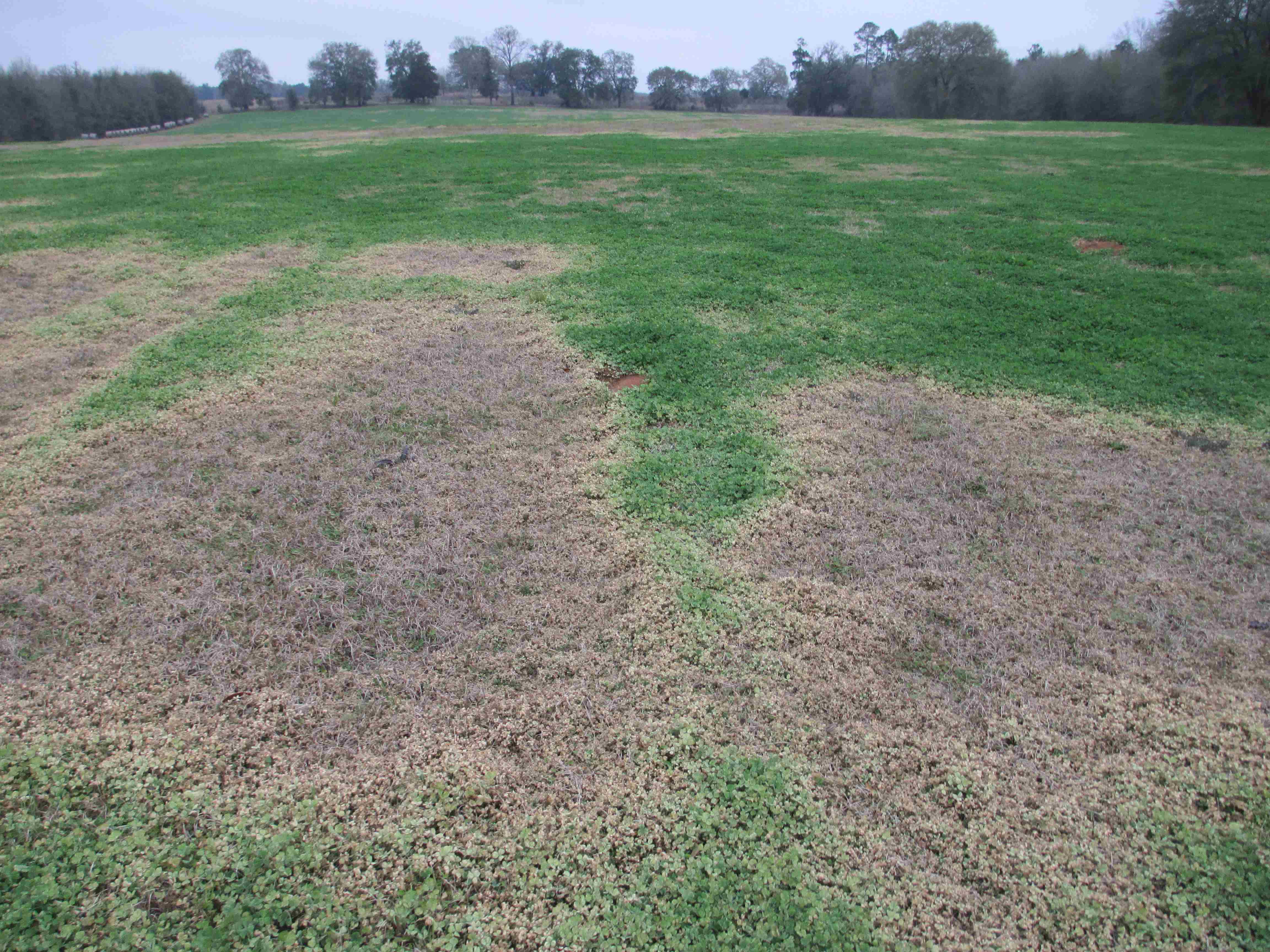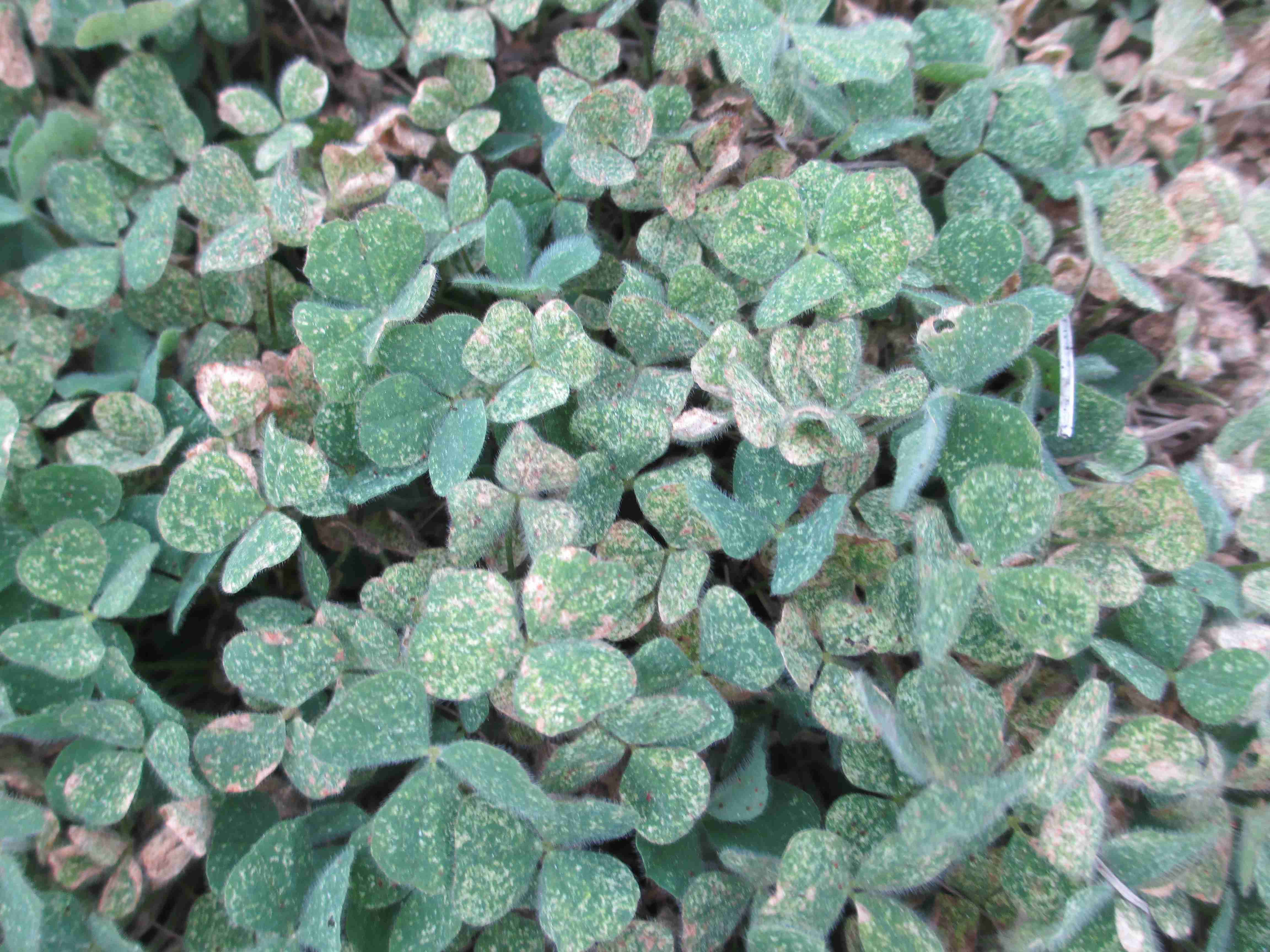This season, clover has had some tough weather conditions to overcome, including heavy rains during planting time and lower temperatures which has reduced growth. However, at least one field of clover has experienced an exceptional amount of pressure from a very rare pest, the legume mite (Petrobia apicalis).
This mite was found infesting a couple hundred acres of clover in Jackson County last week. This field also had some compaction issues and it is suspected that the compaction as well as the mites are causing the dead spots in the field. The mites feed on the underside of the clover leaf sucking the plant juices. They cause damage similar to that of other mites, such as the two-spotted spider mite which feeds on peanuts and cotton. Below are some pictures of the mites and the damage they cause.
 The legume mite has only rarely been observed in the Southeast and was last officially reported in Florida in 1954. A better known mite, the clover mite (Bryobia praetiosa) is a common dooryard pest in the northern regions of the US but is also rarely seen in the Southeast.
The legume mite has only rarely been observed in the Southeast and was last officially reported in Florida in 1954. A better known mite, the clover mite (Bryobia praetiosa) is a common dooryard pest in the northern regions of the US but is also rarely seen in the Southeast.
Because they are so rare, we know very little about them and why we have found them in such high numbers. The fields where these mites were located are bermuda and bahiagrass hayfields with naturally reseeding crimson clover, initially planted 4 years ago. The grower does not cut the clover but allows it to reseed and decompose, thus fertilizing his hay with nitrogen. The grower stated that this was not the first year he has observed a decline in clover production, so likely this mite population has grown and established here over multiple years.
Research in Oregon has shown that chemical control of clover mites has been unsuccessful. According to entomologists Dr. Kathy Flanders at Auburn University and Dr. David Buntin at University of Georgia, the only options are to live with the damage or terminate the clover and keep it from coming back for 1-3 years so that the mite population dies down. However, it is unclear if these mites will be able to continue to thrive on other legume hosts.
If you notice any mites or mite damage on clover on your farm, please contact your local UF/IFAS Extension Agriculture Agent, so that any potential problems can be identified.
- Carinata Starting to Come Up in Jackson County - December 12, 2014
- Wheat Production Considerations for 2014-2015 - November 10, 2014
- Peanut and Cotton Harvest Video 2014 - November 10, 2014




